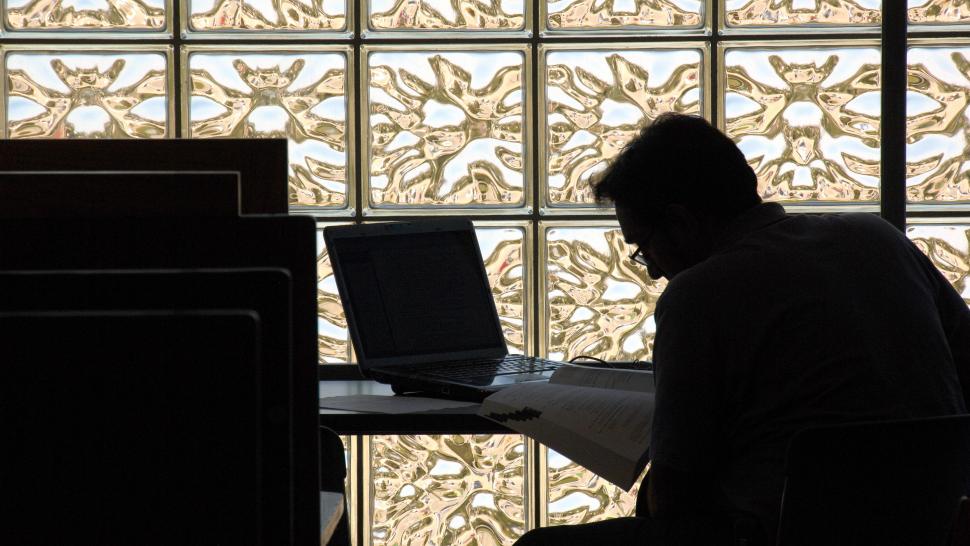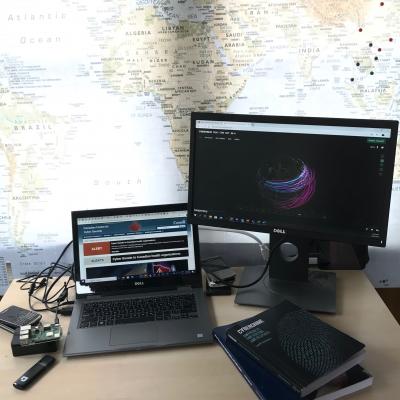
The front lines of an ever-evolving global pandemic can look like hospitals, essential community services, even grocery stores. The front line you can’t see includes the people fighting the pandemic from their home computers.
The “COVID-19 Cyber Threat Coalition” is a group of approximately 2,000 cybersecurity professionals from around the world. They all are volunteers and spend hours a day monitoring threats to hospitals, government infrastructure, and the enormous flood of employees suddenly working from home.
 CBC News recently profiled the “cyber civil defence brigade,” highlighting the role of Canadians and security professionals worldwide.
CBC News recently profiled the “cyber civil defence brigade,” highlighting the role of Canadians and security professionals worldwide.
“We are the line in the sand and refuse to let any hospital or critical infrastructure go down on our watch,” said Humber College professor Francis Syms.
Syms spends a few hours each day volunteering with the coalition from his home office in Toronto's Parkdale neighbourhood.
Syms is still teaching full time as Humber College delivers online and remote learning.
He is a professor in the Faculty of Social and Community Services and teaches in the Protection, Security and Investigation Program.
Syms says the coalition, which includes people in the Netherlands, Africa, the United States and around the world, is sharing real-time intelligence. With representatives from government, Microsoft and Apple, the group is sharing threats to help reduce the risk for everyone.
Protecting the public
According to Syms, ransomware and attacks are on the rise for both institutions and individuals.
Hospitals are susceptible to ransomware, especially when some employees are working from home. Confidential information may be shared via email or online conferencing and could be intercepted, leading to serious problems for the hospital and the greater community fighting COVID-19.
Since hospitals are even more important than ever, if one were held for ransom, it could have tragic consequences.
Syms urges individuals to protect themselves too.
 “How protected are you at home? Is your network safe? Are you using a VPN? Are you sure that the tools you're using to communicate are secure?” said Syms.
“How protected are you at home? Is your network safe? Are you using a VPN? Are you sure that the tools you're using to communicate are secure?” said Syms.
He recommends using a VPN to encrypt communications you send over the Internet. Syms says you can also arm yourself with easy-to-access information, like government resources identifying ongoing phishing scams.
An unexpected opportunity for students
Every cyber security professional in the defence initiative plays a role, though it is not always the same one.
“I do some coordinating, communicating to groups, trying to get other people involved,” said Syms.
Humber College is committed to excellence in polytechnic education and has long valued collaboration and career-focused learning. Syms is providing both by including his students in his work with the coalition.
He has granted them access to the online forums. They will have the opportunity to track threats and provide information where they can, which is valuable because students bring a new perspective to the group.
The unprecedented access allows Humber students to interact with the CIO of a Microsoft company or one of many other big players in the cyber security industry.
Syms says his class may not ever have this kind of opportunity again.
Thanks to him and their lessons learned at Humber, the students are contributing to the protection of the country’s institutions. They are helping to provide a valuable service to their community and beyond.